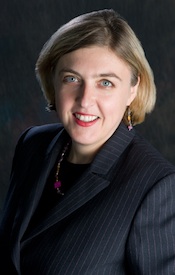
Katrin is Assosciate Professor at Emmanuel College (US), and research associate at the Centre for Research on Discretion and Paternalism.
Katrin have extensive competence in Social Policy, Qualitative Social Research, Sociological Theory, Public Policy, Family Studies and Child Welfare. Her research is focused on the role of professional discretion in decisions related to a child’s best interests and child welfare systems in an international context.
Katrin was, together with Marit Skivenes, awarded the ISW prize for best article published in 2015, with the article “Challenges for marginalized minority parents in different welfare systems: Child welfare workers’ perspectives“.
List of publications: researchgate.net/profile/Katrin_Kriz
Ph.D. in Sociology (Brandeis University)
M.A. in International Development and Social Change (Clark University)
M.A. in Sociology and Women’s Studies (Brandeis University)
Mag. phil. (University of Vienna, Austria)
Get to know Katrin
What are you working on right now?
I just returned from teaching a week-long course in qualitative research methods in an executive Ph.D. program at the TIAS Business School in the Netherlands. This week, I’m catching up on administrative work. (I’m currently chairing the Sociology department at Emmanuel College in Boston.)
As far as my research goes, I’m now working on a book chapter on the Austrian child protection system for The International Handbook of Child Protection Systems, edited by Jill Duerr Berrick, Neil Gilbert and Marit Skivenes.
In the area of child protection, I’m also working on the comparative project on professional discretion and children’s best interests in child protection at the Centre for Research on Discretion and Paternalism.
Over the summer, I’m planning on completing my book manuscript on children’s participation in child protection in Norway and the United States. I’m also co-authoring a book manuscript on the educational experiences of immigrant migrant students in the United States.
What does a typical day for you look like?
There is really no typical day, which is one of the many aspects about my job that I love. Last week, when I taught in the Netherlands, my day mostly involved teaching and reviewing students’ Ph.D. proposals.
When I’m in the U.S., the typical part of my day during the school year consists of driving my daughter to school and basketball practice and picking her up from school or basketball practice— these are moments in the day I especially enjoy.
During the semester, I go to my office in Boston in the morning several days a week to teach my classes and meet with students and colleagues. During the summer (now), I mostly work from home or, when it’s very hot and humid, which it often gets in Boston during the summer, I do my work at the local public library.
Is there a book you’d recommend within your field?
If you’re interested in crimes against humanity, I strongly recommend Daniel Jonah Goldhagen’s Worse Than War: Genocide, Eliminationism and the Ongoing Assault on Humanity. I teach this book in my “Crimes against Humanity” class and find it empirically rich and thought-provoking.
A place you’ve been where you’d like to go back?
There are many! I visited Český Krumlov in Southern Bohemia with my family a couple of times and am planning on returning there with my mom this summer. I would also like to return to the Southwestern part of the United States and Bhaktapur, Patan and Kathmandu in Nepal.
I’d also definitely like to return to Bergen, and I’m looking forward to going back there for a research meeting in August!

